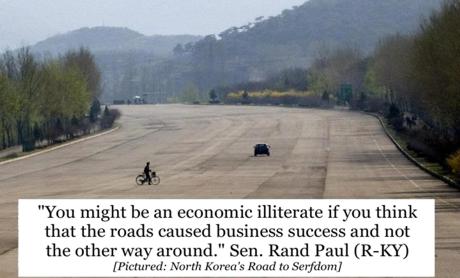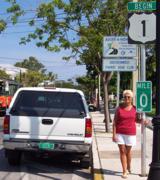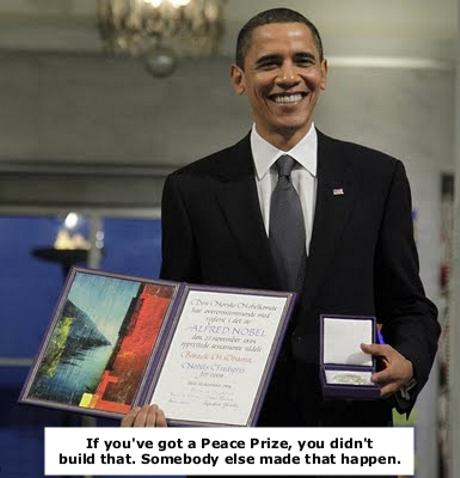I didn’t want to write this column but I snoozed through most of the Monday n00z.
Everybody’s writing about how Olympic “cyclists covered a 156 mile course through the English countryside and towns south of London including the town of Dorking, which is home to the world-famous Dorking Cockerel” and I’m tired of politics because none of those airheads is doing anything new. They all went to Dorking Cockerel, too, I think, but they didn’t stay there.
This photo is making the rounds on the Interwebs.

Half the blogosphere thinks President Obama is a traitor for trashing entrepreneurs and the other half thinks Sen. Rand Paul (R-KY) is a traitor for supporting entrepreneur-politician Mitt Romney.
What, are you nuts?
The least little reading of history — even a World Book Encyclopedia entry — not to mention economics should have taught us how American business followed the river, the trail, the railroad, and then the highway. See, you don’t have trade without transport.
 Business success drove some roads. Indiana entrepreneur Carl Fisher dreamed up the Lincoln Highway, a road that would make a bee-line coast-to-coast from Times Square to San Francisco. It was first officially recorded in 1913 only about 40 years after the first steam powered, carriage-sized “automobile” drove the existing wagon roads in Wisconsin. About the same time Mr. Fisher was pushing roughly along the 40th Parallel, the Atlantic Highway was established to connect Quebec and Miami. We know that road today as U.S. 1.
Business success drove some roads. Indiana entrepreneur Carl Fisher dreamed up the Lincoln Highway, a road that would make a bee-line coast-to-coast from Times Square to San Francisco. It was first officially recorded in 1913 only about 40 years after the first steam powered, carriage-sized “automobile” drove the existing wagon roads in Wisconsin. About the same time Mr. Fisher was pushing roughly along the 40th Parallel, the Atlantic Highway was established to connect Quebec and Miami. We know that road today as U.S. 1.
Mr. Fisher drove down the Atlantic Highway and did a little bit of real estate development around Miami. Fisher Island, for instance.
Automobile traffic increased. Trade grew. Trade increased. Automobile traffic grew. Planners started drawing a nationwide highway system in 1921. The New York parkway system, Route 66, and other famous routes were built in the twenties as local or state highway systems but we needed the interconnected national system to supplement the existing United States Numbered Highways system.
Yeah, yeah. Dr. Paul maybe wants to make the point that Korea builds roads for different reasons than we do. And the Rightie-Tighties apparently want to remind us that Mr. Obama wants to build more roads with our money.
Or something.
Regular visitors may recall that I abhor negative advertising. I dislike stupid advertising even more.
My grandfather would not use Dial soap because their TV ads trumpeted, “Don’t you wish everybody did?”
He didn’t wish that and so he didn’t use the product.
If your political ads piss off the voters, they won’t vote against the other guy. If your political ads lie to the voters, they won’t vote against the other guy. They simply won’t vote. And that’s a vote for the other guy.
Mr. Obama, speaking in Roanoke on July 13, said, “If you’ve got a business, you didn’t build that. Somebody else made that happen.”
The North Korean highway photo doesn’t answer that. The North Korean highway photo just annoys anyone even a little economically literate. At least posters like this one are a far better play on that theme:


Well, if it’s in World Book Encyclopedia then it’s prolly in People Magazine too, and that means it must be true .
I remember seeing “Wagons West” with Rod Cameron and “Westward Ho” with the venerable John Wayne. And I remember both of those protagonaists asking, “Which way to California”.
The answer never was, “Well, stranger you just take Route 66 and stay on it till it intersects with the Interstate going north along the Ocean, and that will lead right to the gold country. That never happened.
My point is that before there were trails there were people seeking a better life–and that meant the movement of Americans and the growth of business. People moved and promoted business, and the railroads followed to further their efforts. If there had not been people along the projected RR routes, then the rails would never have been laid.
When the gas automobile was invented, it made necessary the two lane highway. Look at old movies from the 1930’s and you will see dirt roads. But people were already there. The two-lane highway eventually gave way to the Interstate, and etc, etc.
Let’s don’t even talk about the freakin airports. Without people living in far places and doing business to make it a paying proposition, the paved landing strips would never have become a reality.
This is not a question of which came first: the chicken or the egg. In fact, it is not even a question. It is a fact, that people go to seek freedom to better themselves, and roads follow to facilitate that movement of commerce.
They obviously compliment each other (and I hope that is the correct spelling of compliment), and they made this nation the great land that it is.
I hate liberalism and the donkey it rode up on.
— George
BTW, government dam sure didn’t build the rivers or the lakes; and people were smart enough to use them–the same way they were smart enough to find passes through the mountains and standing water along the wagon trails.
Did I ever mention how much I hate liberalism and the donkey it rode up on?
— George
George, you can debate what role roads have until the cows come home (are there roads on the range?) but that’s not the point, is it? The point is they left out der Bingle.
The point is that the road picture is lousy marketing because it makes us debate the roads or even the ad itself.
If your political ads piss off the voters, they wont vote against the other guy. If your political ads lie to the voters, they wont vote against the other guy. If your political ads confuse the voters, they wont vote against the other guy. They simply wont vote.
And thats a vote for the other guy.
Well, Herr Blogmeister, you are the one who chose the title for this thread: Roads to Riches. So. I was just going with the thread.
Mebbe you should have named it: How to write political ads that do not piss off the people you want to vote for you.
If you had, I wouuld have commented: “If your political ads piss off the voters, they wont vote against the other guy. If your political ads lie to the voters, they wont vote against the other guy. If your political ads confuse the voters, they wont vote against the other guy. They simply wont vote.”
Or something like that.
— George